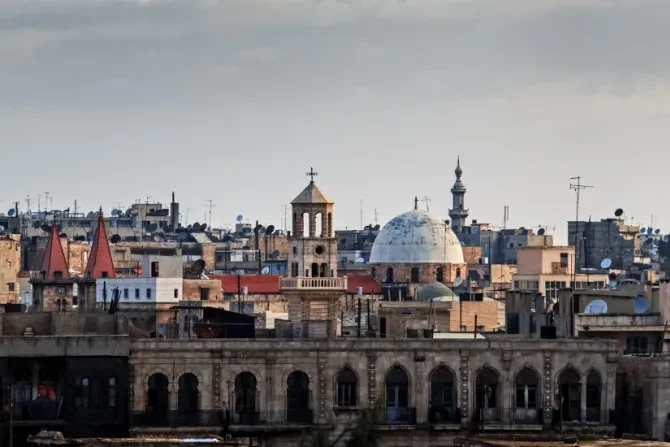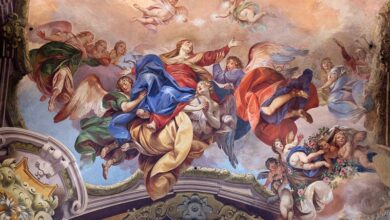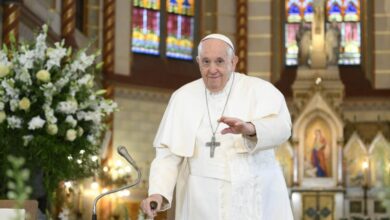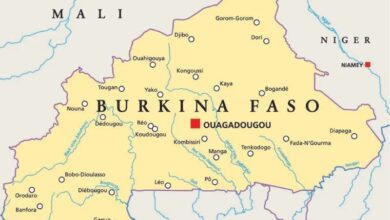Church leaders express ‘hope’ that Syrian regime will respect Christian communities

 The historic city of Aleppo, Syria. / Credits: STEPANOV ILYA/Shutterstock
The historic city of Aleppo, Syria. / Credits: STEPANOV ILYA/Shutterstock Washington, D.C. Newsroom, Dec 10, 2024 / 17:50 pm (CNA).
Catholic Church leaders in the U.S., Rome, and the Middle East have expressed cautious “hope” that the new regime in Syria will respect Christian communities after a lightning offensive this past week by Islamist rebel groups toppled the regime of President Bashar al-Assad.
Bishop Elias Zaidan of the Maronite Eparchy of Our Lady of Lebanon and chairman of the U.S. Conference of Catholic Bishops’ (USCCB) Committee on International Justice and Peace issued a statement on Tuesday in which he called on the U.S. and the international community at large to support Syria as it “starts a new chapter in its rich history.”
“In yet another dramatic development in the Middle East, after enduring more than a decade of bloody civil war, Syria is undergoing a national political transition that will surely impact the entire region,” Zaidan said.
The 53-year reign of the Assad regime crumbled in little more than 10 days after a coalition of so-called “rebel” forces led by the jihadist Sunni Muslim group Hayat Tahrir al-Sham (HTS) swept through the war-torn country’s major cities of Aleppo, Hama, Homs, and finally Damascus on Dec. 8. HTS is notorious for its early roots in Al-Qaeda and has been designated as a terror group by the U.S. and the United Nations.
Al-Assad, successor to his father Hefez, has fled to Moscow with his wife and children, according to Russian and Iranian state media.
The radical turn of events has provoked reactions of both joy at the end of the oppressive regime and fear at the prospect of what an HTS-controlled Syria could mean for its citizens, especially minority Christian communities who fear persecution.
Zaidan further referenced comments made by the apostolic nuncio of Damascus, Cardinal Mario Zenari, who told Vatican News in a Dec. 8 interview that he was greatly relieved at what he described as a relatively peaceful transition thus far.
“Thank God, this transition happened without bloodshed, without the carnage that was feared,” Zenari said, adding: “Now the path ahead is steep — those who have taken power have promised to respect everyone and to build a new Syria. We hope they will keep these promises, but of course, the road ahead remains very difficult.”
According to Zenari, HTS rebel forces met with bishops in Aleppo “immediately” after capturing the city, “assuring them that they would respect the various religious denominations and Christians.”
In his statement, Zaidan said he agrees with Zenari that the “sentiments on the transition and aspirations of the Syrian people are clear.”
“The people of Syria want a government in Damascus that will respect and defend human rights,” Zaidan said, “especially the religious freedom of minorities, uphold the rule of law, and promote economic and civil society development throughout the country.”
“As Syria starts a new chapter in its rich history, I urge the United States and the international community to keep the people of Syria in prayer and to closely monitor the situation so that all aid organizations are able to reach those most in need,” he concluded.
The Vatican’s secretary of state, Cardinal Pietro Parolin, also addressed the developing situation in Syria at a meeting on interreligious dialogue between Muslims and Christians in Milan at the Università Cattolica del Sacro Cuore.





